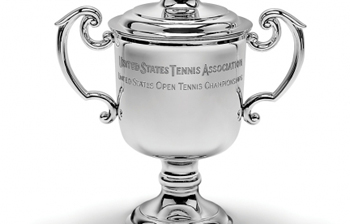When it comes to great geopolitical relationships, you might think U.S.-U.K.
U.S. and Russia? Not so much.
It wasn’t always that way. Catherine the Great, that cagey czarina, was actually a big fan of the American Revolution – in part because it so bedeviled her British rivals, especially George III, whom she detested. Catherine may not have actively aided the colonists, but she didn’t hinder them on the world stage either.
During the American Civil War, though, Russia went the extra step as one of the few countries to support the Union publicly.
Funny thing about revolutions and civil wars: As Peter Stone’s Benjamin Franklin observes in the musical “1776,” “a rebellion is always legal in the first person, such as ‘our rebellion.’ It is only in the third person – their rebellion – that it becomes illegal.”
So once the Russians staged their own revolution in 1917, the relationship headed south as they were all about communism, we were all about capitalism and it doesn’t take a John Maynard Keynes to figure out that the two don’t mix.
Even when the U.S. and Great Britain allied with the Russians in World War II and Franklin Delano Roosevelt famously told Winston Churchill that Joseph “Uncle Joe” Stalin may be a bastard, “but he’s our bastard,” there was a mistrust that some experts believe is what’s really at the heart of the relationship. The minute the Axis powers were defeated, all bets were off. What followed was a series of crises, conflicts and wars played out in the Middle East, Southeast Asia and Latin America, with the two remaining superpowers – the British Empire having dissolved at the end of World War II – fully engaged or pulling strings behind the scenes.
More subtle but just as deadly was the check-checkmate of the “Cold War” – thank you, George Orwell – with its spy game, arms escalation, on-and-off nuclear test-ban treaties and space race that kept the world on tenterhooks.
But the roiling political climate nevertheless gave culture a new urgency and piquancy. When American pianist Van Cliburn won the International Tchaikovsky Competition in Moscow in 1958, it wasn’t just a young Texan staking an artistic claim. It was America – still smarting from the Soviet Union’s launch of the first Sputnik satellite – taking it to the Russkies on their own aesthetic turf and winning rapt hearts and minds through the transcendent power of art. Even Soviet Premier Nikita “We will bury you” Khrushchev said Cliburn deserved the prize.
Would this have been the first sentence of the pianist’s obit this past February without the Cold War tensions? Would Rudolf Nureyev’s and Mikhail Baryshnikov’s leaps over the “Iron Curtain” – thank you, Winston Churchill – have resonated in 1961 and 1974 respectively in quite the same way without them?
Think of what the Cold War – and even the post-Cold War frisson – has done for the Olympics. Sure, everyone loves the “Miracle on Ice” at the Lake Placid Games in 1980, in which an amateur U.S. hockey team defeated a Soviet juggernaut before taking the gold from Finland. Months later, the U.S. would boycott the Summer Games in Moscow over the Soviet invasion of Afghanistan. But some of us Olympic aficionados have a soft spot for other ice wars in which figure skaters vied and cried and judges were accused of favoritism.
Remember when Jamie Salé and David Pelletier lost the gold to Elena Berezhnaya and Anton Sikharulidze in the pairs competition at the 2002 Salt Lake City Games and then were awarded the gold as well after it was revealed that French judge Marie-Reine Le Gougne voted for the Russians in exchange for Russian support of a French skater? (OK, so Salé and Pelletier are Canadian, not American. But still. They’re North American.)
How about the moment in the 2010 Vancouver Games in which Russian singles skater Evgeni Plushenko stepped on the top spot of the podium en route to receiving his silver medal to express his displeasure with American Evan Lysacek getting the gold? Hollywood couldn’t make this stuff up.
Not that Hollywood hasn’t tried. Indeed, one of the upsides of the Cold War, if you can call it that, was that Madison Avenue and Hollywood had a new villain to exploit and they ran with that Bolshevik ball. Some of the results were hilarious in the best sense of that word, beginning with Greta Garbo as an icy Communist who warms to the Gallic charms of Melvyn Douglas in “Ninotchka.” Some 20 years later, the satiric cartoon series “The Rocky & Bullwinkle Show” brilliantly skewered the Cold War with episodes revolving around Boris Badenov and Natasha Fatale – the no-goodnik agents of Pottsylvania – and their bungling attempts to foil true-blue Rocky and Bullwinkle. The 1966 film “The Russians Are Coming, The Russians Are Coming” uproariously imagined what would happen if the Russians invaded – a New England town.
Meanwhile, novelists like John le Carré (“The Spy Who Came In From the Cold,” “The Russia House”) and Martin Cruz Smith (“Gorky Park”) mined a more serious vein in a political chess game that even inspired a musical (“Chess”) with shades of Bobby Fischer and Boris Spassky’s 1972 showdown in Reykjavik, Iceland.
Elsewhere, the results were mixed. James Bond’s encounters with the Soviet-like SPECTRE in such films as “From Russia, With Love” seem terribly dated now, in part because of their portrayal of women. Wendy’s 1980s sendup of Russia as a nation of battle-axes – with a frumpy model sporting daywear, eveningwear and swimwear that consisted of a housecoat and babushka accented by a flashlight and beach ball – was clichéd and mercilessly funny.
Perhaps equally amusing (though unintentionally so) in the decade of the three Rs – “Rocky,” “Rambo” and Reagan – were those Sylvester Stallone films, in which the icy-blond Soviet villains out-Nazied the Nazis. “Rambo II” was Cold War porn. “Rocky IV” ended with red, white and blue Rocky defeating the Soviet machine and realizing “that if I can change and you can change, everyone can change.”
Gorby must’ve heard him. Mikhail Gorbachev – the anti-Khrushchev – made Soviet premiers sexy, intelligible and human. Under his leadership, the Iron Curtain came down, the Soviet empire fell away – and Hollywood had a villain problem.
But not for long. Unfortunately, terrorists of every stripe were ready to step into the void. Still, there’s hope for the Bad(enov) old days under President Vladimir Putin, who brings some old-style Soviet swagger to those topless pix of himself doing macho stuff like splitting logs. What with the Russians putting a halt on American adoptions, welcoming our rogue whistleblowers and warning gay athletes to keep it zipped at the Sochi Games, we might be entering a whole new Cold War.
To those fantasists who can only dream, the words of 19th-century British Prime Minister Benjamin Disraeli apply: “There are no permanent friends or permanent enemies, only permanent interests.”



